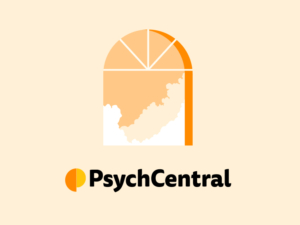Study Highlights Need to Prioritize Mental Healthcare Among Survivors of COVID-19
 As of the end of February, more than 78 million people have been infected with COVID-19 and more than 945,000 people have died in the United States—roughly 16 times the number of Americans killed in the Vietnam War. SARS-CoV-2 (the virus that causes COVID-19) has not only attacked the lungs and other organs of infected people, though. The pandemic has also had a devastating impact on the mental health of many Americans, according to new research. “A study of more than 11 million people shows a 60 percent increase for mental health disorders up to one year after having COVID-19,” reported Andrea Rice on PsychCentral in February.
As of the end of February, more than 78 million people have been infected with COVID-19 and more than 945,000 people have died in the United States—roughly 16 times the number of Americans killed in the Vietnam War. SARS-CoV-2 (the virus that causes COVID-19) has not only attacked the lungs and other organs of infected people, though. The pandemic has also had a devastating impact on the mental health of many Americans, according to new research. “A study of more than 11 million people shows a 60 percent increase for mental health disorders up to one year after having COVID-19,” reported Andrea Rice on PsychCentral in February.
Using data from the US Department of Veterans Affairs national healthcare databases, Yan Xie, Evan Xu, and Ziyad Al-Aly examined the risks of mental health outcomes among individuals who survived at least 30 days following a positive COVID-19 test between March 2020 and January 2021 (before COVID vaccines became available).
While the new study was composed of more than 11 million people, only about 150,000 individuals were examined closely. Participants in the study were largely white men in their early 60s, though women and minority groups were also included. The results suggest that, compared to mental health disorders typically seen after influenza, a COVID infection exacerbated the risk of onset among the 153 848 people observed.
Study co-author Ziyad Al-Aly, MD, chief of research and development at Veterans Affairs St. Louis Health Care System and a clinical epidemiologist, told PsychCentral the “neuropsychiatric manifestations” associated with long COVID could offer a possible explanation for the increased risk for mental illness following infection. “We see higher risk in COVID versus flu. We also see higher risk in people hospitalized for COVID versus those hospitalized for any cause,” Al-Aly said.
The researchers concluded that their findings “show an increased risk of mental health disorders in people with COVID-19. Evidence also suggests that people with mental health disorders are at increased risk of becoming infected with SARS-CoV-2 and having serious outcomes.”
“Given the large and growing number of people with COVID-19 … the absolute risks of incident mental health disorders might translate into large numbers of potentially affected people around the world. Our results should be used to promote awareness of the increased risk of mental health disorders among survivors of acute COVID-19 and call for the integration of mental healthcare as a core component of post-acute COVID-19 care strategies.”
A new wave of pandemic-related mental health disorders is also likely to exacerbate America’s substance misuse epidemic since there is a well-established strong correlation between experiencing traumatic events (such as a pandemic), depression, anxiety, and substance use disorder (SUD).
Co-occurring mental health disorders and SUD should be addressed concurrently in a comprehensive treatment program addressing all needs of such patients. “Dual diagnosis” is a term used to describe the presence of addiction and other co-occurring mental health conditions such as depression and post-traumatic stress disorder.
Colorado Recovery understands the importance of coordinated and integrative treatment care and provides substance use services to all clients who require them as part of a specialized dual diagnosis track. We have taken great care to address COVID stress for clients and staff alike throughout the pandemic.
Colorado Recovery offers multiple comprehensive treatment options for a variety of mental health conditions including residential options, intensive outpatient programming (IOP), and transitional living. If you or a loved one is experiencing persistent episodes of depression, anxiety, or has had suicidal thoughts, contact your doctor or call us at 720-218-4068 to discuss treatment options for you or the person you would like to help.





